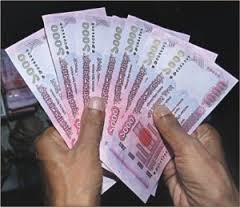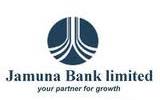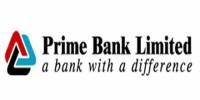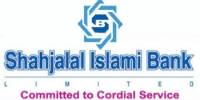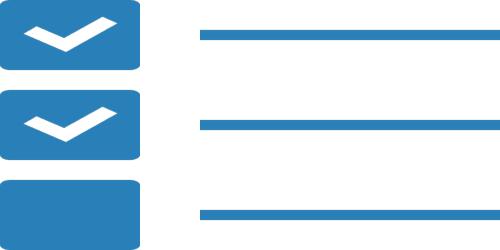Banking Business in Bangladesh
The financial system of Bangladesh consists of Bangladesh Bank (BB) as the central bank, 4 State Owned Commercial Banks (SCB), 5 government owned specialized banks, 30 domestic private banks, 9 foreign banks and 29 non-bank financial institutions. Moreover, MRA has given license to 298 Micro-credit Organizations. The financial system also embraces insurance companies, stock exchanges and co-operative banks.
CENTRAL BANK
Central Bank and its policies
Bangladesh Bank (BB), as the central bank, has legal authority to supervise and regulate all banks and non-bank financial institutions. It performs the traditional central banking roles of note issuance and of being the banker to the government and banks. Given some broad policy goals and objectives, it formulates and implements monetary policy, manages foreign exchange reserves and lays down prudential regulations and conduct monitoring thereof as they apply to the entire banking system. Its prudential regulations include, among others: minimum capital requirements, limits on loan concentration and insider borrowing and guidelines for asset classification and income recognition. The Bangladesh Bank has the power to impose penalties for non-compliance and also to intervene in the management of a bank if serious problem arise. It also has the delegated authority of issuing policy directives regarding the foreign exchange regime.
Monetary Policy
Monetary policy is a set of rules that aims at regulating the supply of money in accordance with predetermined goals or objectives. Monetary policy plays a very dominant role in altering the economic activity and the price level in a country. So, it should be very carefully formulated and implemented in achieving the goals and objectives as outlined in the Bangladesh Bank Order, 1972 below:
Price stability both internal & external
Sustainable growth & development
High employment
Economic and efficient use of resources
Stability of financial & payment system
Reserve Management Strategy
Bangladesh Bank (BB) is empowered by section 7A of Bangladesh Bank Order, 1972 (President’s Order No. 127 of 1972) to hold and manage the official foreign exchange reserve of Bangladesh . It maintains its foreign exchange reserve in different currencies to minimize the risk emerging from widespread fluctuation in exchange rate of major currencies and very irregular movement in interest rates in the global money market. BB has established Nostro account arrangements with different Central Banks. Funds accumulated in these accounts are invested in Treasury bills, repos and other government papers in the respective currencies. It also makes investment in the form of short term deposits with different high rated and reputed commercial banks and purchase of high rated sovereign/supranational/corporate bonds. Forex Reserve & Treasury Management Department of BB performs the operational functions regarding investment which is guided by investment policy set by the BB’s Investment Committee headed by a Deputy Governor. The underlying principle of the investment policy is to ensure the optimum return on investment with minimum market risk.
Exchange Rate Policy
Towards liberalization of foreign exchange transactions, a number of measures were adopted since 1990s. Bangladeshi currency, the taka, was declared convertible on current account transactions (as on 24 March 1994), in terms of Article VIII of IMF Article of Agreement (1994). As Taka is not convertible in capital account, resident owned capital is not freely transferable abroad. Bangladesh adopted Floating Exchange Rate regime since 31 May 2003. Under the regime, BB does not interfere in the determination of exchange rate, but operates the monetary policy prudently for minimizing extreme swings in exchange rate to avoid adverse repercussion on the domestic economy. In the forex market banks are free to buy and sale foreign currency in the spot and also in the forward markets.
Interest Rate Policy
Under the Financial sector reform program, banks are free to charge/fix their deposit (Bank /Financial Institutes) and Lending (Bank /Financial Institutes) rates other than Export Credit. At present, Loans at reduced rates (7%) are provided for all sorts of export credit since January 2004. With a view to controlling the price hike and ensuring adequate supply of essential commodities, the rate of interest on loan for import financing of rice, wheat, sugar, edible oil (crude and refined), chickpeas, beans, lentils, onions, spices , dates and powder milk has been temporarily fixed to a maximum of 12%.
Now, banks can differentiate interest rate up to 3% considering comparative risk elements involved among borrowers in same lending category. With progressive deregulation of interest rates, banks have been advised to announce the mid-rate of the limit (if any) for different sectors and the banks may change interest 1.5% more or less than the announced mid-rate on the basis of the comparative credit risk.
Recently Banks have been advised to upload their deposit and lending interest rate in their respective website.
Capital Adequacy of the Banks
With a view to strengthening the capital base of banks and making them prepare for the implementation of Basel-II Accord, banks are required to maintain Capital to Risk-Weighted Assets ratio 10% at the minimum with core capital not less than 5% effective from December 31, 2007. However, minimum capital requirement (paid up capital and statutory reserve) for all banks will be Tk.200 crore as per Bank Company (Amendment) Ordinance, 2007. Banks having capital shortfall will have to meet at least 50% of the shortfall by June, 2008 and the rest by June, 2009.
Revaluation reserves of held to maturity (HTM) securities (up to 50% of the revaluation reserves) has been added to the components of supplementary capital. Besides, ‘Hedging the price risk of commodity transactions’ has been included in Short-term self liquidating trade related contingencies.
Loan Classification and Provisioning
In order to strengthen credit discipline and bring classification and provisioning regulation in line with international standard, Bangladesh Bank issued a master circular on loan classification and provisioning through BRPD circular no 5 dated June 5, 2006. The revised policy covers an independent assessment of each loan on the basis of objective criteria and qualitative factors which is appended below :
Any Continuous Loan/Demand Loan if not repaid/renewed within the fixed expiry date for repayment will be treated as past due/overdue from the following day of the expiry date. A Continuous Loan/Demand loan/Term Loan which will remain overdue for a period of 90 days or more, will be put into the “Special Mention Account(SMA)”. Interest accrued on “Special Mention Account (SMA)” will be credited to Interest Suspense Account, instead of crediting the same to Income Account.
A Continuous Loan/Demand loan is classified as ‘Sub-standard’ if it is past due/over due for 6 months or beyond but less than 9 months, classified as`Doubtful’ if it is past due/over due for 9 months or beyond but less than 12 months and classified as `Bad/Loss’ if it is past due/over due for 12 months or beyond.
If any installment(s) or part of installment(s) of a Fixed Term Loan is not repaid within the due date, the amount of unpaid installment(s) will be termed as `defaulted installment’. In case of Fixed Term Loans, which are repayable withinmaximum five years of time- If the amount of ‘defaulted installment’ is equal to or more than the amount of installment(s) due within 6 (six) months, the entire loan will be classified as “Sub-standard”, if the amount is equal to or more than the amount of installment(s) due within 12 (twelve) months, the entire loan will be classified as“Doubtful” and if the amount is equal to or more than the amount of installment(s) due within 18 (eighteen) months, the entire loan will be classified as “Bad/Loss”.
In case of Fixed Term Loans, which are repayable in more than five years of time and if the amount of ‘defaulted installment’ is equal to or more than the amount of installment(s) due within 12 (twelve) months, the entire loan will be classified as“Sub-standard”. If the amount is due within 18 (eighteen) months, the entire loan will be classified as “Doubtful” and if the amount is due within 24 (twenty four) months, the entire loan will be classified as “Bad/Loss”.
Deposit and Insurance:
The deposit insurance scheme (DIS) was introduced in Bangladesh in August 1984 to act as a safety net for the depositors aiming at minimizing the risks of loss of depositors’ fund with banks in which all the commercial banks including foreign banks and the specialized banks operating in Bangladesh are the member of this scheme by compulsion as provided under Article of Bank Deposit Insurance Act 2000. The DIS is designed to minimize the risks that the depositors suffer a loss out of placing funds with a bank. The purpose of DIS is to help to increase market discipline, reduce moral hazard in the financial sector and provide safety nets at the minimum cost to the public in the event of bank failure. The direct rationale for the deposit insurance is customer protection. The indirect rationale for deposit insurance is that it reduces the risks of systemic crisis, involving, for example, panic withdrawals of deposits from sound banks and breakdown of payments system. A Deposit Insurance Trust Fund (DITF) has also been created for providing limited protection (not exceeding Taka 0.01 million) to a small depositor in case of winding up of any bank. The Board of Directors of Bangladesh Bank is the Trustee Board for the DITF. Bangladesh bank has adopted a system of risk based deposit insurance premium rates applicable for all scheduled banks effective from the half year January – June 2007. According to new instruction regarding premium rates, problem banks are required to pay 0.09 percent and private banks other than the problem banks and state owned commercial banks are required to pay 0.07 percent where the percent coverage of the deposits is taka one hundred thousand per depositor per bank. With this end in view, BB has already advised the banks for bringing DIS into the notice of the public through displaying the same in their display board.
Foreign Exchange System
On March 24, 1994 Bangladesh Taka (domestic currency) was declared convertible for current transactions in terms of Article VIII of the IMF Articles of Agreement. Consequent to this, current external settlements for trade in goods and services and for amortization payments on foreign borrowings can be made through banks authorized to deal in foreign exchange, without prior central bank authorization. However, because resident owned capital is not freely transferable abroad (Taka is not yet convertible on capital account), some current settlements beyond certain indicative limits are subject to bonafides checks.
Direct investments of non-residents in the industrial sector and portfolio investments of non-residents through stock exchanges are repatriable abroad, as also are capital gains and profits/dividends thereon. Investment abroad of resident-owned capital is subject to prior Bangladesh Bank approval, which is allowed only sparingly.
BANK & Fls.
Bank Licensing
Bank Company Act, 1991, empowers BB to issue licenses to carry out banking business in Bangladesh . Pursuant to section 31 of the Act, before granting a license, BB needs to be satisfied that the following conditions are fulfilled: “that the company is or will be in a position to pay its present or future depositors in full as their claims accrue; that the affairs of the company are not being or are not likely to be conducted in a manner detrimental to the interest of its present and future depositors; that, in the case of a company incorporated outside Bangladesh, the Government or law of the country in which it is incorporated Bangladesh as the Government or law of Bangladesh grants to banking companies incorporated outside Bangladesh and that the company complies with all applicable provisions of Bank Companies Act, 1991.”
Licenses may be cancelled if the bank fails to comply with above provisions or ceases to carry on banking business inBangladesh .
Commercial Banks
The commercial banking system dominates the financial sector with limited role of Non-Bank Financial Institutions and the capital market. The Banking sector alone accounts for a substantial share of assets of the financial system. The banking system is dominated by the 4 State Owned Commercial Banks, which together controlle more than 30% of deposits and operates 3383 branches (50% of the total) as of June 30, 2008.
Specialized Banks
Out of the 5 specialized banks, 2(Bangladesh Krishi Bank and Rajshahi Krishi Unnayan Bank) were created to meet the credit need of the agricultural sector while the other two (Bangladesh Shilpa Bank(BSB) & Bangladesh Shilpa Rin Sangtha(BSRS) ) are for extending term loans to the industrial sector of Bangladesh .
Financial Institutions (FIs)
Twenty-nine financial institutions are now operating in Bangladesh . Of these institutions, 1(one) is govt. owned, 15 (fifteen) are local (private) and the other 13(thirteen) are established under joint venture with foreign participation. The total amount of loan & lease of these institutions is Tk.99,091.80 million as on 31 December, 2007. Bangladesh Bank has introduced a policy for loan & lease classification and provisioning for FIs from December 2000 on half-yearly basis. To enable the financial institutions to mobilize medium and long-term resources, Government of Bangladesh (GOB) signed a project loan with IDA, and a project known as “Financial Institutions Development Project (FIDP)“ has started its operation from February 2000. Bangladesh Bank is administering the project. The project has established “Credit, Bridge and Standby Facility (CBSF)“ to implement the financing program with a cost of US$ 57.00 million.
CAPITAL MARKET
The Capital market, an important ingredient of the financial system, plays a significant role in the economy of the country.
1. Regulatory Bodies
The Securities and Exchange Commission exercises powers under the Securities and Exchange Commission Act 1993. It regulates institutions engaged in capital market activities. Bangladesh Bank exercises powers under the Financial Institutions Act 1993 and regulates institutions engaged in financing activities including leasing companies and venture capital companies.
2. Participants in the Capital Market
The SEC has issued licences to 27 institutions to act in the capital market. Of these, 19 institutions are Merchant Banker & Portfolio Manager while 7 are Issue Managers and 1(one) acts as Issue Manager and Underwriter.
i) Stock Exchanges
There are two stock exchanges ( the Dhaka Stock Exchange (DSE) and the Chittagong Stock Exchange (CSE) ) which deal in the secondary capital market. DSE was established as a public Limited Company in April 1954 while CSE in April 1995. As of 30 June 2000 the total number of enlisted securities with DSE and CSE were 239 and 169 respectively. Out of 239 listed securities with the DSE, 219 were listed companies, 10 mutual funds and 10 debentures.
ii) Investment Corporation of Bangladesh (ICB)
The Investment Corporation of Bangladesh was established in 1976 with the objective of encouraging and broadening the base of industrial investment. ICB underwrites issues of securities, provides substantial bridge financing programmes, and maintains investment accounts, floats and manages closed-end & open-end mutual funds & closed-end unit funds to ensure supply of securities as well as generate demand for securities. ICB also operates in the DSE and CSE as dealers.
iii) Specialized Banks
Bangladesh Shilpa Bank (BSB), Bangladesh Shilpa Rin Sangstha (BSRS), BASIC Bank Ltd., some Foreign Banks and NCBs are engaged in long term industrial financing.
Microcredit Regulatory Authority
Microfinance is now a nation-wide activity in Bangladesh . The issue of a regulatory framework has come to the forefront because NGO-MFIs, the major provider of this service, are providing financial services to the poor outside the formal banking system. The government of Bangladesh enacted ‘Microcredit Regulatory Authority Act 2006′(act number 32 of the year 2006) on July 16, 2006 with effect from August 27, 2006 with a view to ensuring transparency and accountability of microcredit activities of the Microfinance Institutions (MFIs) in the country. Microcredit Regulatory Authority (MRA)has been established under the act which is now empowered and responsible to implement the said act and to bring the microcredit sector of the country under a full-fledged regulatory framework. According to the Act, no MFI can carry out microcredit activities without obtaining licence from MRA. Section 15(2) of ‘Microcredit Regulatory Authority Act 2006’ has made it mandatory for MFIs who had microcredit activities before the effective date (August 27,2006) of the act to apply for licence to MRA within six months (February 26, 2007) from the effective date of the act.
Accordingly 4236 NGO-MFIs have applied to MRA for licence by February 26, 2007. It was decided by the Authority that among these organizations, only those organizations will be considered for licence who can fulfill minimum criteria (have equal to or more than 1000 borrowers or equal to or more than taka 40 lakhs loan outstanding). Rest of the organizations already applied to the Authority will be allowed time till June 2009 to reach the above mentioned minimum criteria. If they are unable to meet those criteria within specified time they will have to close their microcredit operation after that given time. Accordingly applications from 705 institutions are being considered for license. After evaluating their application and real operations at field level they are being considered finally as eligible to get license. Upto May 20, 2008 the authority has issued 250 licence to different NGO-MFIs and licensing procedure of other selected NGO-MFIs are under process.
MRA is also working to prepare details rules and policies to monitor and supervise licensed NGO-MFIs that will cover governance issues, financial transparency, mode of operations and other related issues to ensure transparency and accountability in operation.
List o f banks in Bangladesh
The commercial banking system dominates Bangladesh ‘s financial sector. Bangladesh Bank is the Central Bank of Bangladeshand the chief regulatory authority in the sector. The banking system is composed of four state-owned commercial banks, five specialized development banks, thirty private commercial Banks and nine foreign commercial banks. The Nobel-prize winning Grameen Bank is a specialized micro-finance institution, which revolutionized the concept of micro-credit and contributed greatly towards poverty reduction and the empowerment of women in Bangladesh .
Central Bank
Bangladesh Bank (http://www.bb.org.bd/)
Social Islami Bank (http://www.siblbd.com/)
Pursuant to Bangladesh Bank Order, 1972 the Government of Bangladesh reorganized the Dhaka branch of the State Bank ofPakistan as the central bank of the country, and named it Bangladesh Bank with retrospective effect from 16 December 1971.
State-owned Commercial Banks
The banking system of Bangladesh is dominated by the 4 Nationalized Commercial Banks , which together controlled more than 54% of deposits and operated 3388 branches (54% of the total) as of December 31, 2004.[1] The nationalized commercial banks are:
Specialised Bank of Bangladesh:
Karmosangesthan Bank (http://www.karmasangsthanbank.gov.bd/)
Bangladesh Krishi Bank (http://www.krishibank.org.bd/)
Sonali Bank (www.sonalibank.com.bd)
Janata Bank (www.janatabank-bd.com)
Agrani Bank (http://www.agranibank.org/)
Rupali Bank (http://www.rupalibank.org/)
Private Commercial Banks
Private banks are the highest growth sector due to the dismal performances of government banks (above). They tend to offer better service and products.
BRAC Bank Limited (www.bracbank.com)
Eastern Bank Limited (http://www.ebl-bd.com/)
Dutch Bangla Bank Limited (http://www.dutchbanglabank.com/)
Dhaka Bank Limited (http://www.dhakabankltd.com/)
Islami Bank Bangladesh Ltd (http://www.islamibankbd.com)
Pubali Bank Limited (http://www.pubalibangla.com/)
Uttara Bank Limited (http://www.uttarabank-bd.com/)
IFIC Bank Limited (http://www.ificbank.com.bd/)
National Bank Limited (http://www.nblbd.com/)
The City Bank Limited (https://www.thecitybank.com.bd/)
United Commercial Bank Limited (http://www.ucbl.com/)
NCC Bank Limited (https://www.nccbank.com.bd/)
Prime Bank Limited (http://www.primebank.com.bd/)
SouthEast Bank Limited (http://www.sebankbd.com/)
Al-Arafah Islami Bank Limited (http://www.al-arafahbank.com/)
Social Islami Bank Limited (http://www.siblbd.com)
Standard Bank Limited (http://www.standardbankbd.com)
One Bank Limited (http://www.onebankbd.com)
Exim Bank Limited (http://www.eximbankbd.com)
Mercantile Bank Limited (http://www.mblbd.com)
Bangladesh Commerce Bank Limited (http://www.bcbl-bd.com)
Mutual Trust Bank Limited (http://www.mutualtrustbank.com)
First Security Islami Bank Limited (http://www.fsblbd.com)
The Premier Bank Limited (http://www.premierbankltd.com)
Bank Asia Limited (http://www.bankasia-bd.com)
Trust Bank Limited (http://www.trustbank.com.bd)
Shahjalal Islami Bank Limited (http://www.shahjalalbank.com.bd)
Jamuna Bank Limited (http://www.jamunabankbd.com)
ICB Islami Bank (http://www.icbislamic-bd.com/)
Foreign Commercial Banks
Citibank (http://www.citi.com/domain/index.htm)
HSBC (http://www.hsbc.com.bd)
Standard Chartered Bank (http://www.standardchartered.com/bd)
Commercial Bank of Ceylon (http://www.combankbd.com)
State Bank of India (http://www.statebankofindia.com)
Habib Bank (http://www.habibbankltd.com)
National Bank of Pakistan (http://www.nbp.com.pk)
Woori Bank (http://www.wooribank.com)
Bank Alfalah (http://www.bankalfalah.com)
Specialized Development Banks
Out of the specialized banks, two (Bangladesh Krishi Bank and Rajshahi Krishi Unnayan Bank) were created to meet the credit needs of the agricultural sector while the other two ( Bangladesh Shilpa Bank (BSB) & Bangladesh Shilpa Rin Sangtha (BSRS) are for extending term loans to the industrial sector.[1] The Specialized banks are:Grameen Bank (www.grameen-info.org)
The Dhaka Mercantile Co-operative Bank ltd (www.dmcbl.com)
Bangladesh Krishi Bank (http://www.krishibank.org.bd)
Bangladesh Development Bank Ltd (http://www.bdbl.com.bd)
Rajshahi Krishi Unnayan Bank (http://www.rakub.org.bd)
BASIC Bank Limited (Bangladesh Small Industries and Commerce Bank Limited) (http://www.basicbanklimited.com)
Ansar VDP Unnyan Bank (http://www.ansarvdpbd.org/)
